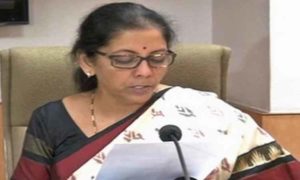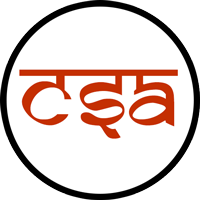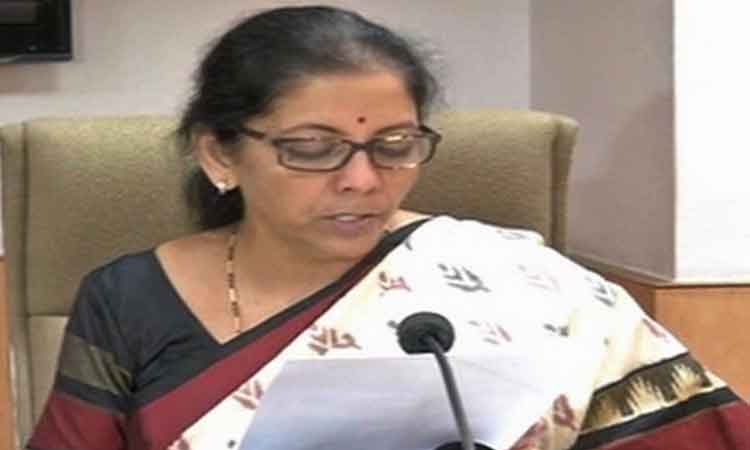http://www.councilforstrategicaffairs.blogspot.com/2015/12/wto-from-doha-to-nairobi-india-leads.html

The World Trade Organization’s (WTO) Tenth Ministerial Conference was recently held in Nairobi, Kenya, from 15 to 19 December 2015, the first such meeting hosted by an African nation. The conference was chaired by Kenya’s Cabinet Secretary for Foreign Affairs and International Trade, Amina Mohamed and had to be extended by an additional day owing to lack of consensus and sharp divisions. There were tough negotiations and bargaining till two hours before the final package was approved despite a majority of 162 participating countries having serious doubts about the final five page long “Nairobi Ministerial Declaration” (NMD) or the so-called “Nairobi package”. India’s trade Minister Nirmala Sitharaman covered herself with glory when she firmly pointed out the manner in which the final declaration ignored India’s long-held viewpoints.
The Nairobi Package contains a series of six Ministerial Decisions on agriculture, cotton and issues related to least-developed countries. These include a commitment to abolish export subsidies for farm exports, which the Director-General Roberto Azevêdo hailed as the “most significant outcome on agriculture” in the WTO’s 20-year history. The achievements of the “Nairobi package” are very controversial depending upon which side of the international divide one belongs to. On one hand, the western block gloats over the final nail put in the coffin of the Doha Developmental Agenda (DDA), India expressed deep disappointment over the Nairobi Declaration saying its concerns were not addressed adequately. The Nairobi package by its failure to reaffirm the DDA again yielded to the US line. Prior to the meeting, the US had called for the WTO to remove the “stricture of the Doha round”. The developing countries were left feeling that once again the agenda of the developed countries prevailed despite being in minority at the expense of the developing countries.
Because the WTO functions by an opaque consensus modality, the US achieved what it wanted by highlighting the divisions between the US/EU/Japan on one hand and China, India, the African Union and the LDCs on the other side. Failure to have consensus on reaffirmation of the DDA led to essentially jettisoning the DDA and paving the way for newer agenda issues like e-commerce, digital economy and investments besides a preference for narrowly focused limited sectoral arrangements. Mike Froman, the US trade representative crowed: “While the opinions remain divided among the WTO membership, it is clear that the road to a new era for the WTO began in Nairobi”. US having comparative advantage in those new areas would be able to dictate terms in future ministerial meetings as the new issues are allowed for the first time in last 14 years.
The other agricultural decisions taken during the NMD cover public stockholding for food security purposes, a special safeguard mechanism for developing countries, and measures related to cotton. Decisions were also made regarding preferential treatment for the least developed countries (LDCs) in the area of services and the criteria for determining whether exports from the LDCs may benefit from trade preferences. The only non-controversial achievement of the 10th Ministerial meeting was the inclusion of Afghanistan in the WTO whose application for membership was languishing for the last 11 years!
There is a stringent domestic criticism of the Government of India by the Congress party and specifically by Anand Sharma, the former UPA Minister for Commerce for failure of the final declaration to reaffirm the DDA. These nay-sayers who suggest that India should have walked away and take the blame for the failure do not understand why China or any of the LDCs or African countries did not block the final “Nairobi Package”. None of these players including China had the anatomical fortitude to pull the plug from the final ministerial declaration! African countries had already started to blame India as they did not want the first WTO conference held in an African country to be deemed as failure! On the social media, West inspired anti-India campaigns were started to badmouth India as an enemy of free trade. If India had blocked the “Nairobi Package” the international consequences would have been disastrous for India. India is already the “bad boy” or the “whipping boy” of the international trade negotiations. India is still negotiating for entry into a number of regional and multi-lateral trade blocks and would have been “black-balled”. Already the US and China have delayed India’s entry into the APEC.
To Government of India’s credit, India won four years of reprieve from legal challenges if the subsidy limit for procurement for public distribution were breached. The Government was able to get the “peace clause” inserted in place till a permanent solution in the form of a reworked formula is arrived at.
Congress party must realize that there are multitude of legacy issues regarding the WTO functioning for which the former Congress party government is responsible. At the time of the acceptance of the Marrakesh Declaration of 15 April 1994 which called for transformation of the GATT (General Agreement on Trade and Tariff) into the WTO, former Prime Minister PV Narasimha Rao led Congress party government was in power. It acquiesced to a very opaque system of international rules under the WTO sacrificing India’s trade and mercantile interests forever. In the name of consensus, The Director-General of the WTO has considerable discretion and say in arriving at the final negotiated text of the ministerial declaration. There are a lot of back-room negotiations that sometimes can stymie the majority of the participating countries.
At this juncture, India must focus on further harm reduction and damage limitation to our own national trade interests. India must stop mouthing empty “third world” rhetoric for the LDCs and safeguard her own interests. India must give up the sermonizing, moralist international trade policy and adopt real-politick approach that safeguards India’s narrow national trade and mercantile interests irrespective of whatever happens to the trade interests of the LDCs and Africa. When push comes to shove, these countries habitually either abandon India or fail to show spine in presence of US/EU/Japan pressure. The only business of the Government of India is to promote Indian interests alone and not African or the least developed countries’ interests.
The only way for India to exercise influence in international trade negotiations is from a position of power and strength as an insider. India should throw her hat in the ring and should announce her candidature for the position of the next Director General of the WTO when the post becomes vacant in September 2017. On September 1, 2013, the WTO selected and welcomed a new Director-General, Roberto Azevêdo, of Brazil ostensibly as a token of solidarity of the developing countries. India whole-heartedly, threw her lot behind Brazil. Sadly speaking, Roberto Azevêdo, of Brazil did not whole-heartedly work for the interests of the LDCs or for the “third world” and let the US hijack the final “Nairobi declaration” despite being in minority along with the EU and Japan. This should be a lesson learnt for India. The election or selection process will become live nine months before the vacancy. India should work towards building a plurality and possibly a majority in her favor by openly contesting the election of next Director General of the WTO.
India must also work towards renegotiating the rules of WTO functioning from consensus approach to a more democratic decision making by 2/3rd majority vote. Having position of the Director General will help India facilitate changes in the WTO as an insider rather than as a perpetual outsider.
– See more at: https://www.myind.net/wto-doha-nairobi-india-leads-developing-world#.dpuf
अपि स्वर्णमयी लङ्का न मे लक्ष्मण रोचते जननी जन्मभूमिश्च स्वर्गादपि गरीयसी
DR. ADITYANJEE
PRESIDENT,
THE COUNCIL FOR STRATEGIC AFFAIRS, NEW DELHI
adityancsa@gmail.com
twitter@DrThinkTank



